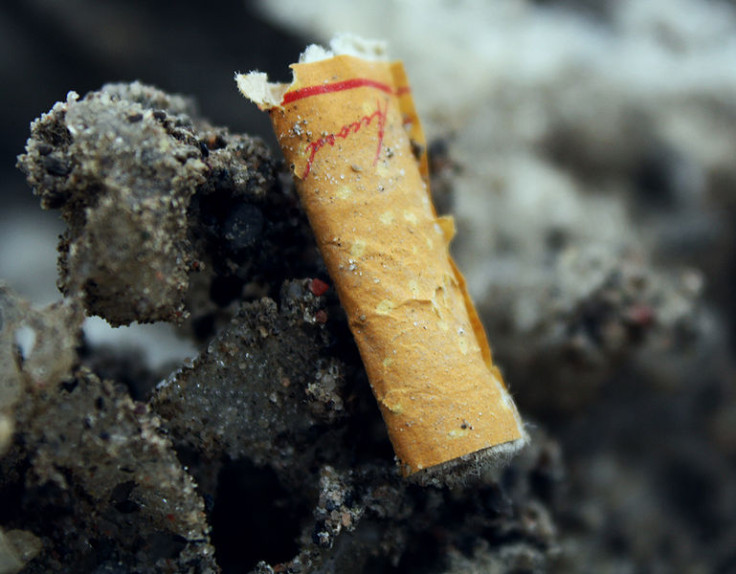Trillions of Cigarette Filters Destroy Environment and Contaminate Water Sources

Researchers have backed policy measures to curb the environmental harm caused through the large-scale littering of cigarette butts, packaging and matches.
Around 4.5 trillion of annual cigarettes smoked, out of the six trillion bought worldwide, litter roadsides or pavements. Cigarette butts and other tobacco waste products are the items most commonly picked up during urban and beach clean-ups worldwide.
Tobacco waste products contain the same toxins, nicotine, pesticides and carcinogens found in cigarettes and cigars, and can contaminate the environment and water sources. Studies show that the chemicals within cigarettes, such as arsenic, nicotine, lead and ethyl phenol, could leach into salt and fresh water and be acutely toxic to aquatic micro-organisms and fish.
Thomas Novotny and Elli Slaughter of San Diego State University are researchers who have suggested measures to combat the problem, such as banning cigarette filters, launching a deposit scheme for used butts and holding manufacturers responsible for clean-ups. Another simple, yet potentially effective solution, would be to place warnings on packets about the impact of simply flicking used cigarettes away.
"Tobacco waste products are ubiquitous, environmentally hazardous and a significant community nuisance," Novotny said. "With two-thirds of all smoked cigarettes numbering in the trillions globally, being discarded into the environment each year, it is critical to consider the potential toxicity and remediation of these waste products."
The materials used to create cigarettes are also harmful to the environment. Plastic cigarette filters are practically non-biodegradable and can leach chemicals for up to ten years.
In the US, an estimated 49.8 million kilograms of filters are discarded annually. This excludes the weight of remnant butt tobacco, discarded packages, lighters and matches, and other tobacco products such as cigars and smokeless tobacco.
The researchers call filtered cigarettes a "farce" in terms of consumer safety, with a recent National Cancer Institute review showing that these are not healthier or safer than non-filtered ones. With this in mind, Novotny and Slaughter have proposed a ban on filtered cigarettes.
Jonathan Samet, from the University of Southern California, recently advised the California State Legislature on the matter, saying: "It is evident that filtered cigarettes have had little impact on the risks of smoking over the last half century."
The researchers have backed new environmental interventions and partnerships between tobacco control and environmental groups, as anti-littering laws have not changed smokers' littering habits.
They propose litigation to hold the tobacco industry legally responsible for clean-up and nuisance costs associated with their products, advocating the use of labels on cigarette packages about the toxicity of discarded butts, and a deposit-return scheme similar to that used for glass and metal beverage containers.
Other options include requesting the industry to pay an advanced recycling fee or to take back all discarded tobacco waste products.
The suggestions are part of a review article in Springer's journal Current Environmental Health Reports.
© Copyright IBTimes 2024. All rights reserved.






